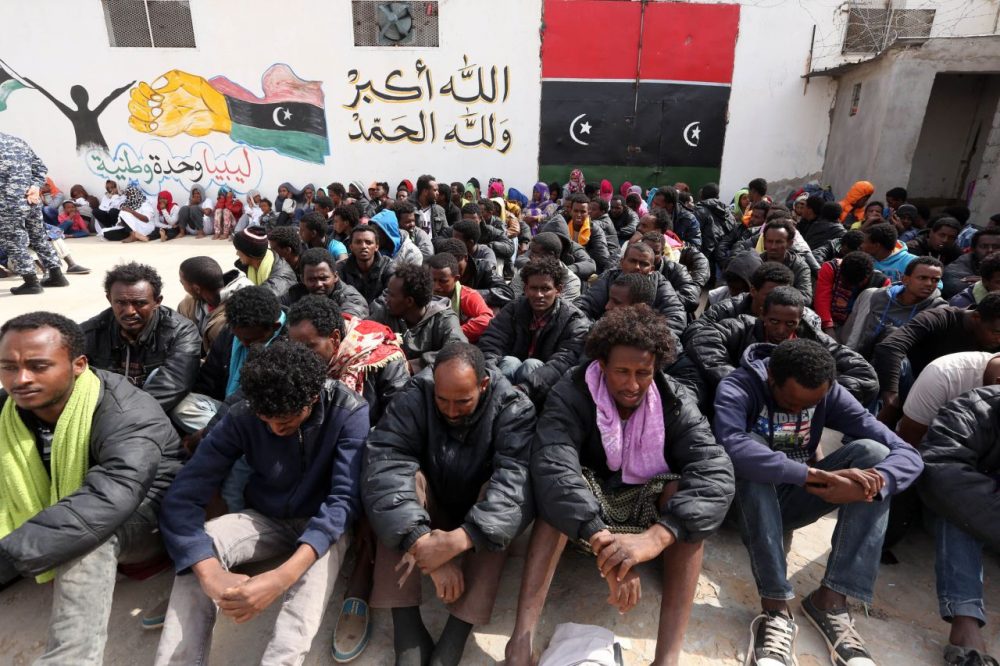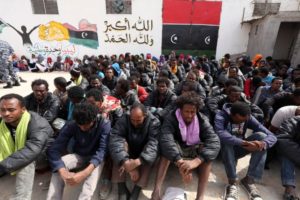
 The UN has reiterated its call on Algeria to immediately halt summary expulsions of African migrants, as authorities in the North African country continue to round up and expel thousands to Niger in harsh desert climate.
The UN has reiterated its call on Algeria to immediately halt summary expulsions of African migrants, as authorities in the North African country continue to round up and expel thousands to Niger in harsh desert climate.
The appeal was made by UN Special Rapporteur on migration Felipe González Morales, following his official visit to Niger; a hub for those looking to leave in search of new opportunities, for decades.
In a statement, the UN Special Rapporteur on migration cited testimonies of migrants exposed to “unimaginable atrocities”: trafficking, torture, arbitrary arrest and detention, rape, as well as worker-exploitation and enslavement.
The Special Rapporteur called on Algeria to halt the alleged collective expulsions of Nigerien and West African migrants to Niger immediately, noting that this had involved more than 17,000 people this year so far.
“I heard testimonies of migrant women, men and children who were raided in their homes in the middle of the night, arbitrarily arrested and detained, beaten and ill-treated, transported in trucks and dropped 15 kilometers from the border with Niger,” González Morales said.
“These migrants are forced to walk through the desert, without any assistance from Algerian or Nigerien authorities, until the first Nigerien village, 20 kilometers away from the border.”
While commending Niger for its “generosity and solidarity” in hosting refugees, González Morales noted how in recent years restrictive migration laws and policies had made it a “virtual southern border of Europe”.
He highlighted how the 2015 law on illicit smuggling of migrants had resulted in a “de facto ban of migration towards the north”, prompting people to look for other, even riskier alternatives.
The migrants had taken migrant routes through Sudan, Chad, Libya and Mali to Niger.
“Despite its purported aim to prevent and combat the illicit smuggling of migrants, the implementation of the law has led to the criminalization of migration and violations of the human rights of migrants,” the Special Rapporteur said. “Multiple sources have indicated that instead migrants have shifted to more dangerous, longer and more expensive routes.”
The independent rights expert, who was appointed in June 2017 by the UN Human Rights Council, insisted that migration policies “cannot solely rely on security considerations” and must have human rights “as a central component”.
Any help from the international community – and the European Union – should help Niger “in re-focusing” its migration management strategy, he said.
This would involve strengthening national institutions, so they could cope with large movements of migrants, enhancing monitoring of their human rights, and supporting development projects in local communities.
The development comes amid ongoing efforts by the international community to develop solutions for migrants and Member States by means of a Global Compact for safe, orderly and regular migration.
The final text of the Global Compact was adopted in July this year and a high-level summit is planned in Morocco on 10-11 December to discuss its adoption.
While the protection of refugees and the international community’s responsibility towards them is addressed in the 1951 Convention, migrants have yet to benefit from such an approach.
If it is adopted in Marrakesh, the Global Compact will go some way to addressing this, with a series of recommendations and objectives for States that sign it, to better manage migration at local, national, regional and global levels.
